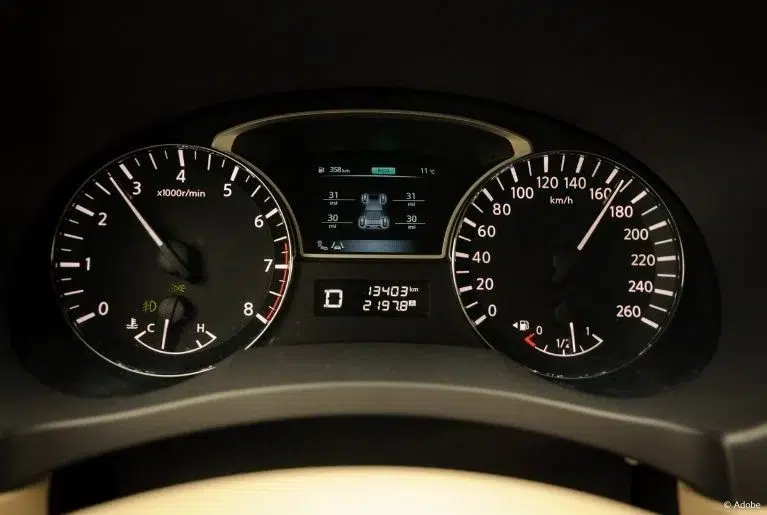Faulty Nissan Transmission? Join the Class Action if you own a Nissan vehicle, you might have heard the buzz about transmission issues plaguing several popular models. These problems have become a major headache for countless drivers, leading to costly repairs, safety concerns, and now, a major class action for faulty Nissan transmissions. If you’ve experienced transmission troubles, this guide will walk you through everything you need to know about joining this class action, your potential compensation, and the steps to protect your rights as a vehicle owner.

Understanding the Problem: What Makes Nissan Transmissions Faulty?
Before diving into the legal details, it’s important to understand what makes these transmissions problematic. Nissan has long relied on continuously variable transmissions (CVTs) in many of its popular models. CVTs, unlike traditional automatic transmissions, use a system of pulleys and belts to provide a seamless driving experience without fixed gears. In theory, this design offers better fuel efficiency, smoother acceleration, and a more responsive ride.
However, despite their advantages, Nissan’s CVTs have faced significant criticism for their long-term reliability. Common issues reported by drivers include:
- Slipping and Hesitation: Many drivers report that their vehicles hesitate or slip when accelerating, which can be both frustrating and dangerous in traffic.
- Overheating: CVTs can overheat under normal driving conditions, leading to power loss and sudden performance drops.
- Premature Wear: Unlike traditional transmissions, CVTs rely on belts and chains that can wear out prematurely, leading to expensive repairs.
- Complete Transmission Failure: In the worst cases, the entire transmission can fail, leaving drivers stranded and facing repair bills in the thousands.
These problems have sparked a wave of lawsuits, as drivers demand compensation for the high costs associated with these defects.
Which Nissan Models Are Affected?
The class action for faulty Nissan transmissions covers a wide range of models, many of which are among Nissan’s best-sellers. The following models have been prominently featured in these lawsuits:
- Nissan Altima (2013-2020)
- Nissan Sentra (2013-2020)
- Nissan Rogue (2014-2020)
- Nissan Pathfinder (2013-2020)
- Nissan Juke (2013-2017)
- Nissan Versa (2013-2019)
- Nissan Murano (2015-2020)
If you own one of these vehicles, you may be eligible to join the ongoing class action for faulty Nissan transmissions.
Why Join a Class Action Lawsuit?
Joining a class action for faulty Nissan transmissions can be a powerful way to hold the automaker accountable. Here’s why it might be in your best interest:
- Lower Legal Costs – Class actions pool the resources of many plaintiffs, reducing individual legal fees.
- Stronger Case – By joining forces with other affected drivers, you strengthen the overall case against Nissan.
- Potential Compensation – Successful class actions can result in significant financial settlements, including reimbursement for repairs, replacement costs, and even compensation for diminished vehicle value.
- Pressure for Change – Class actions can push automakers to improve their designs, issue recalls, or extend warranties, benefiting all future vehicle owners.
The Legal Grounds for the Lawsuit
To win a class action for faulty Nissan transmissions, plaintiffs must prove several key points:
- Breach of Warranty – Nissan offers powertrain warranties that should cover transmission issues, but many drivers claim the company has failed to honor these guarantees.
- Fraud and Misrepresentation – Some lawsuits allege that Nissan intentionally concealed known defects to avoid costly recalls and protect its brand image.
- Negligence in Design and Testing – Plaintiffs argue that Nissan failed to properly design, test, and manufacture its CVTs, leading to widespread mechanical failures.
- Unfair Trade Practices – Many cases also allege that Nissan violated consumer protection laws by selling vehicles with known defects.
Gathering Evidence for Your Claim
If you’re considering joining the class action for faulty Nissan transmissions, it’s crucial to gather strong evidence to support your claim. This might include:
- Repair Bills – Keep copies of any invoices related to transmission repairs or replacements.
- Service Records – Document all maintenance visits, including fluid changes and inspections.
- Technical Service Bulletins (TSBs) – Research whether Nissan has issued TSBs related to your vehicle’s transmission.
- Owner Complaints – Print or save copies of complaints filed with the National Highway Traffic Safety Administration (NHTSA) or similar consumer protection groups.
- Photos and Videos – If possible, capture footage of your vehicle exhibiting transmission problems, like jerking, slipping, or power loss.
How to Join the Class Action
Joining a class action for faulty Nissan transmissions typically involves a few straightforward steps:
- Find the Right Law Firm – Look for a legal team with experience in automotive defect cases. They can assess your situation and determine if you qualify to join the class action.
- File Your Claim – Submit your information to the law firm handling the class action. This may include providing repair bills, service records, and a description of your transmission issues.
- Stay Informed – Keep in touch with your legal team and stay updated on the progress of the lawsuit.
- Prepare for Discovery – Be ready to share documents, photos, and other evidence if required.
What to Expect if the Lawsuit Succeeds
If the class action for faulty Nissan transmissions is successful, you could be eligible for a range of compensation options, including:
- Reimbursement for Repairs – You may receive partial or full reimbursement for out-of-pocket repair costs.
- Extended Warranties – Nissan might be required to extend transmission warranties for affected models.
- Buybacks – In extreme cases, the company could be required to repurchase defective vehicles.
- Cash Settlements – Drivers might receive direct cash compensation for their losses.
Transmission issues can be a costly and frustrating experience for any driver. However, by joining a class action for faulty Nissan transmissions, you can take a stand, seek compensation, and push for meaningful changes within the auto industry. If your Nissan’s transmission has left you stranded or struggling with expensive repairs, don’t hesitate to explore your legal options. Together, drivers can hold automakers accountable and demand the quality and reliability they deserve













